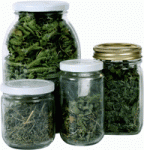Stay Informed
Popular Articles
- Hiatal Hernia: Hidden Cause of Chronic Illness
- Small Intestinal Bacterial Overgrowth (SIBO)
- Applied Lymphology: Unlocking the Secret to Pain Relief
- An Introduction to Constitutional Iridology
- The Low Down on Liver Detoxification
- An Energetic and Emotional Approach to Cancer
- Fat Facts
- Marrow in the Bones
- Blood Type and Nutrition
- Cardiac Herbs: Beyond Hawthorn
Quick Search
The School of Modern Herbal Medicine




Thomas Easley

Thomas Easley, RH(AHG) is a Clinical Herbalist and professional member of the American Herbalists Guild. He has been in full time clinical practice for 12 years. He is the co-developer of the School of Modern Herbal Medicine’s Advanced Herbal Training Program and Activating the Healing Response Course. Thomas believes in using foods as primary medicine and uses intensive diets as well as stress reduction techniques, nutritional supplements and exercise to help people achieve their health goals.
Thomas is the founder of and primary instructor for the Eclectic School of Herbal Medicine. His philosophy integrates modern science and traditional herbalism into a unified and systematic approach to health and healing. He is trained in and uses functional medicine theory, as well as modern naturopathic therapies along with Traditional Western Herbalism. His approach is influenced strongly by both the Eclectic and Physiomedical Physicians of the 19th century.
Content Posted by Thomas Easley
Thoughts on Crowd-Sourcing Health Advice
- Blog
- By Thomas Easley
- October 28, 2014
- The Eclectic Herbalist (Thomas Easley)
War in the Natural Health World
- Article
- By Thomas Easley
- August 5, 2014
- General Health
There is a silent war being waged in the natural health world. The battle is between those who are genuinely interested in helping people to improve their health and those who are just pushing products without good science or even a historical tradition of use. Just because a company's marketing tells you a product is safe and effective doesn't make it so. This article tells you how to tell the difference between legitimate natural health products and services and those that are actually harmful.
Why Herbs? Webinar
- Webinar Recording
- By Steven Horne, Thomas Easley
- May 28, 2014
- Free Webinar Recordings
The Language of Herbalism
- Blog
- By Thomas Easley
- April 8, 2014
- The Eclectic Herbalist (Thomas Easley)
Ashwaganda
- Article
- By Thomas Easley
- January 13, 2014
- Herbs & Herbalism
Like many adaptogens, Ashwagandha is used as a tonic to support the functioning of the adrenal glands. Unlike most adaptogens, Ashwagandha is not stimulating, it’s a calming adaptogen. Studies and clinical experience show it is as potent as American or Chinese Ginseng, without the risk of overstimulation that can occur with excessive use of both Ginsengs.
Understanding Herbal Formulas
- Webinar Recording
- By Steven Horne, Thomas Easley
- January 6, 2014
- Free Training in Herbalism, Free Webinar Recordings
Small Intestinal Bacterial Overgrowth (SIBO)
- Article
- By Steven Horne, Thomas Easley
- May 31, 2013
- Specific Health Problems
Do you suffer from chronic belching, boating, gas, acid reflux, a hiatal hernia or other digestive problems?
You might just have a problem with small intestinal bacterial overgrowth (SIBO). In fact, many of the problems attributed to yeast infections are actually caused by SIBO. Read this article to understand what SIBO is, what causes it and how to eliminate it naturally.
An Introduction to Field Botany Webinar
- Webinar Recording
- By Steven Horne, Thomas Easley
- March 19, 2012
- Free Webinar Recordings
Herbs for the Respiratory System
- Webinar Recording
- By Steven Horne, Thomas Easley
- May 10, 2011
This is the free preview webinar for Module Three of Steven Horne and Thomas Easley's Advanced Herbal Training Program. Module Three covers Herbs for the Respiratory System. In this webinar we cover why herbalists are needed to help solve the growing problem of respiratory ailments in modern society, basic differential assessment of respiratory congestion and some basic pointers for colds, bronchitis, sinusitis, allergies and asthma.







